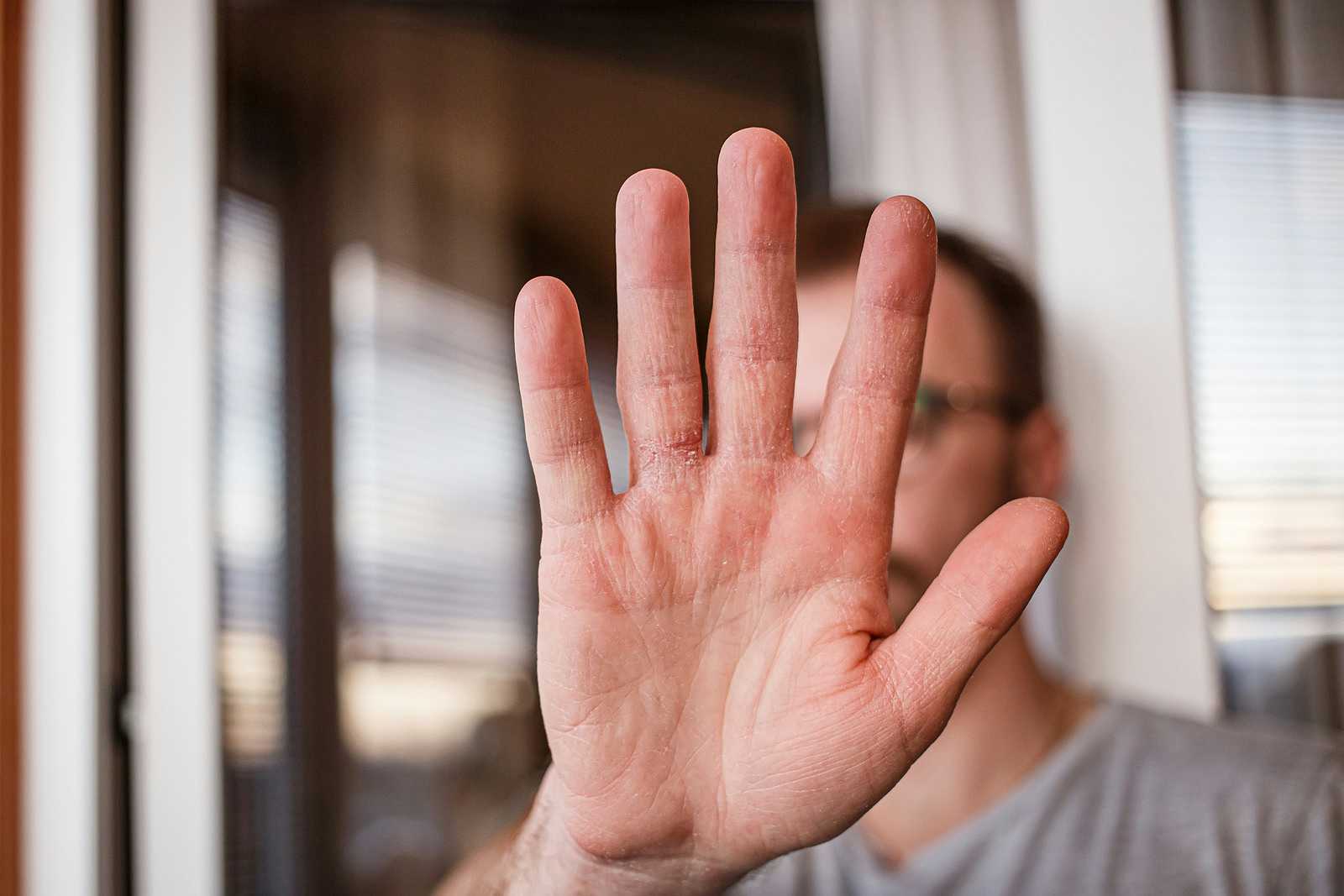
Have you looked at your hands lately? Chances are they are red and chapped. Washing your hands is one of the ways you can reduce your chance of contracting COVID-19. So most of us are washing our hands a lot this winter. How can you prevent dry skin from so much washing?
The Good and the Bad About Soap:
Soap is great for removing germs. It is especially helpful against viral particles. That’s because soap can break down the fatty shell that coats the virus. Of course, soap also strips away natural oils that keep your skin from drying out.
Instead of soap, some people use hand sanitizers. To kill the coronavirus, you need to use products with at least 70 percent ethanol. Thirty seconds of exposure to such a hand sanitizer is enough to inactivate SARS-CoV-2, the coronavirus that causes COVID-19 (Emerging Infectious Diseases, July 2020). Unfortunately, alcohol also removes the oils your skin uses to protect itself.
Now, add winter weather to the mix and you have a recipe for really dry skin. That’s because humidity drops at this time of year. And indoor air that has been heated is especially likely to dry out your skin.
Ways to Prevent Dry Skin:
So what’s the best way to prevent dry skin and soothe chapped hands? Dermatologists frequently recommend greasy moisturizers. Petroleum jelly is a perennial favorite. The American Academy of Dermatology also recommends products containing mineral oil, shea butter, lanolin, glycerin or jojoba oil.
Remedies from our Readers:
Our readers have shared their favorite approaches to managing dry skin. Here are a few of them.
Phoebe writes:
“Every winter, I develop a crack on my right thumb above the nail. If I catch it early, O’Keeffe’s Working Hands Hand Cream heals it. It’s wonderful for dry cracked hands in general. I can’t use lanolin, and this cream does not have any. If I’ve spent the day wearing leather gloves, I often need to put New Skin Liquid Bandage on the crack.”
Marie offers this simple and inexpensive approach:
“I live at more than a mile above sea level, so our air is especially dry. Each winter my fingers and hands would crack and bleed, but not this winter. I apply extra virgin olive oil to my hands, arms, neck, face, legs and feet every morning and evening. It soaks in so fast that it’s not oily at all! My right thumb has only cracked once this winter. Olive oil works even better than the A & D ointment I used last winter.”
Other readers use coconut oil as their moisturizer.
Karen reports:
“At my last trip to the dermatologist, I was complaining to the receptionist about itchy skin. She told me that a coworker was using coconut oil with great results. Now I rub organic coconut oil in my hands to liquefy it before applying it to my legs and arms after my shower. It works.”
Lactic acid and urea are not usually thought of as moisturizers, but they can improve the barrier function of the skin (Skin Pharmacology and Physiology, June 2, 2016).
Supplements as a Solution:
Some readers prevent dry skin by moisturizing from the inside out.
Dawn attests:
“I used to get dry skin and very dry lips that cracked and were painful, especially in the corners. For the last few years, I’ve taken a tablespoon of Carlson’s Fish Oil liquid daily. I haven’t had dry skin or dry cracked lips. Omega 3 is important for whole body health, but you get an added bonus of improved skin and hair from regular use.”
There is no single solution for everyone’s dry skin. Trial and error may be the best way to find a remedy that works well for you.
Moisturizing Chapped Lips:
Hands are not the only parts of the body that can become dry. Although we don’t wash our lips frequently as we do our hands, lips lose more water and dry out more easily (International Journal of Cosmetic Science, Feb. 2020). A product with oil and wax that really sticks to the lips helps alleviate roughness and dryness.
We would modestly like to suggest that our all-natural lip care products stick very well and are quite soothing for chapped lips. They combine coconut oil, beeswax, sunflower seed oil, castor oil, jojoba seed oil and cocoa butter. Choose from appealing berry or pomegranate flavors. We offer single tubes or a double or triple pack.
Sallie said:
“This is the only lip balm that works for me! I tried every brand the drugstore offered, but most just made my lips more cracked and dry. I use it all year and I keep a tube in handy locations: by my bed, in my pocket, in my car, etc.”
We hope you will like it, too.
Citations
- Kratzel A et al, "Inactivation of Severe Acute Respiratory Syndrome Coronavirus 2 by WHO-recommended hand rub formulations and alcohols." Emerging Infectious Diseases, July 2020. DOI: 10.3201/eid2607.200915
- Danby SG et al, "The effect of an emollient containing urea, ceramide NP, and lactate on skin barrier structure and function in older people with dry skin." Skin Pharmacology and Physiology, June 2, 2016. DOI: 10.1159/000445955
- Tamura E et al, "The efficacy of a highly occlusive formulation for dry lips." International Journal of Cosmetic Science, Feb. 2020. DOI: 10.1111/ics.12583

